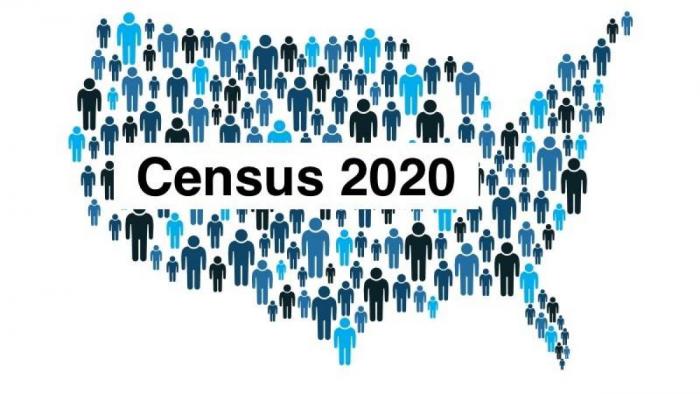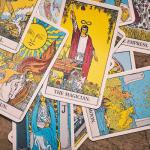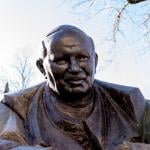THE RELIGION GUY’S ANSWER:

Most Americans may never have thought about this, an odd omission considering that religion is such an important aspect of society. Canada’s government, for example, has asked about religious affiliations since 1871.
But from the first once-a-decade U.S. Census conducted in 1790, the federal government has never directly asked all Americans about their religion (or lack thereof). Responses are anonymous, which should remove any sensitivities about answering such a question. The usual explanation is that “separation of church and state” forbids such questionining by a government agency, which is debatable.
Much of the history below draws upon an April 12 article about the Census by the Pew Research Center that has further detail for those interested, available here: www.pewresearch.org/short-reads/2023/04/12/why-the-us-census-doesnt-ask-americans-about-their-religion/.
Instead of church-and-state entanglement, The Guy offers a different sort of objection to Census involvement. Religious affiliation or identity may be too complicated a matter for government nose-counters to deal with accurately.
Several non-government agencies with more expertise in this area collect standard data on Americans’ religion, with numbers that regularly conflict due to differing methods, assumptions and definitions. One of the most important is Pew Research’s own Religious Landscape Study, last issued in 2014. See www.pewresearch.org/religion/religious-landscape-study/. Groundwork for the next round has already begun. Pew’s precision on religious factions and identities is vital because Protestant categories like “Lutheran” or “Presbyterian” mask big differences among groups with that label.
A “census” and other non-government sources
That sort of specificity is also provided in the “U.S. Religion Census” (www.usreligioncensus.org) conducted each decade since 1990 by experts in religion statistics. This agency recently posted data as of 2020 for 372 religious groups. The numbers are searchable by state and county as well as nationwide. Religious groups are categorized by several broad “traditions” within which there are numerous “families.” The detailed local surveying is useful because many congregations disguise denominational affiliations in their names. Also, individual members may not know exactly which group they’re part of.
This census provided the remarkable news that the nation’s biggest Protestant body is now the cumulative 21 million members in 44,319 independent, non-denominational local congregations that surveyors found. Look for ongoing arguments over the census’s memberships for African-American denominations, which are far below traditional claims. Also of interest is the 4,454,908 estimate for U.S. Muslims, well outnumbering those affiliated with Judaism, within which the census says Orthodoxy now has more active members than either the Conservative or Reform branches.
From 1916 through 2012, an annually published yearbook collected church statistics as reported by the various Christian denominations themselves, but thin finances and staffing at the National Council of Churches ended this valuable service. The Association of Statisticians of American Religious Bodies maintains a regularly updated online continuation of the idea at www.yearbookofchurches.org/. Valuable data on religion also come from Gallup Polls, Duke University’s National Congregations Study, the General Social Survey at the University of Chicago, the Harvard University-based Cooperative Congressional Election Study, and the Center for the Study of Global Christianity at Gordon-Conwell Theological Seminary.
Debate, but no change
Pew Research recounts that the Census Bureau prepared for the 1960 survey by testing out a question on religious affiliation in Milwaukee, and then with a nationwide sample. The bureau’s director at the time thought a religion question would not violate church-state separation or be any more offensive or intrusive than asking about a person’s level of education. Proponents said the resulting information would not only help religious leaders but academic researchers and public school planners. However, concerns about privacy and opposition from certain religious groups kept the question off the 1960 Census.
By 1976, a different bureau director said such a question “would appear to infringe upon the traditional separation of church and state” and, legality aside, he feared “controversy on this very sensitive issue could affect public cooperation.” In October of that year, the U.S. Congress barred the decennial Census from asking about respondents’ “religious beliefs” or “membership in a religious body.” Some Jewish organizations had objected with the Holocaust still in believers’ memories, as did some Baptists, Latter-day Saints, and followers of Christian Science.
The Census Bureau has gathered voluntary religion information, apart from the main Census in which the law requires all residents to answer the questions. Sometimes population or household surveys have asked about worship attendance or religious donations. Five times from 1850 to 1890, the Census collected reports from faith leaders about their memberships or the number of houses of worship in their communities. In 1906 the bureau launched the “Census of Religious Bodies” that gathered data from questionnaires mailed to religious leaders. Eventually budget constraint ended that useful practice. The Census Bureau issues economic data on religious groups in its County Business Patterns reports, and formerly repeated church membership statistics from the National Council’s yearbook when it issued the annual “Statistical Abstract of the United States.”













